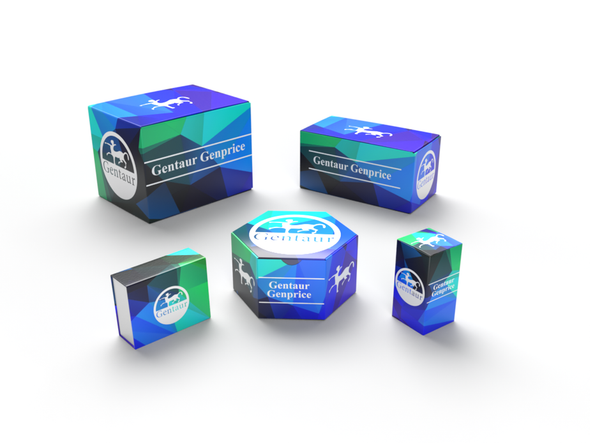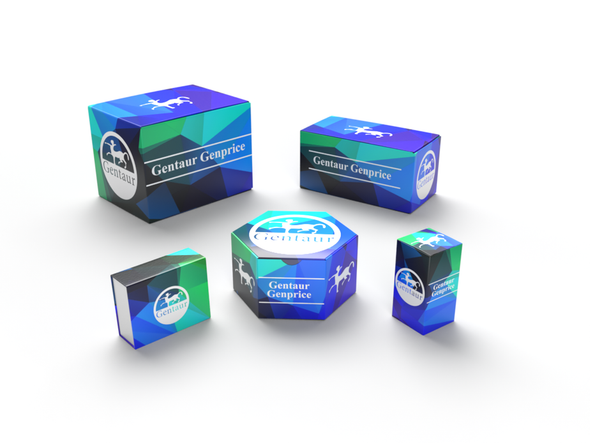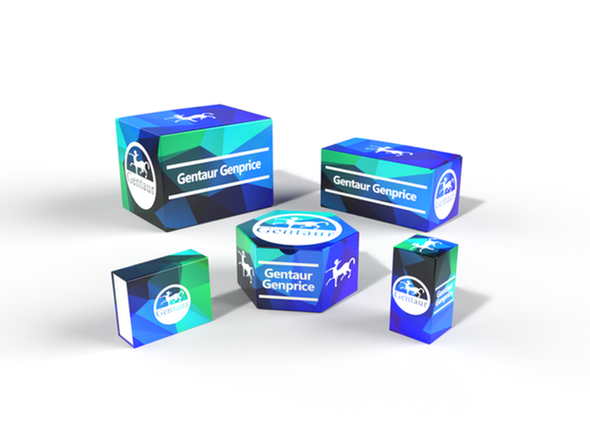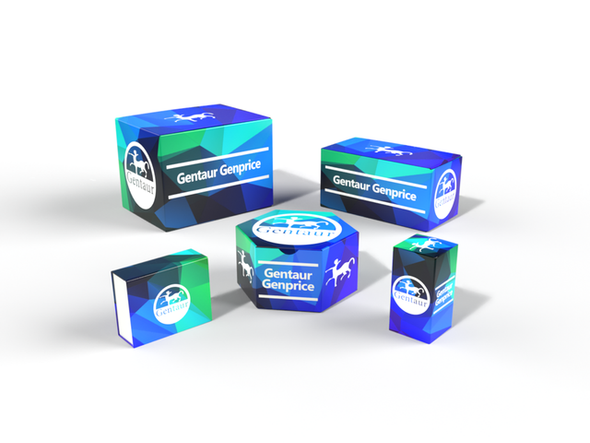749
Rat C-type natriuretic peptide (CNP) ELISA Kit | KTE100824
- SKU:
- 749-KTE100824
- Availability:
- Usually ships in 5 working days
Description
Rat C-type natriuretic peptide (CNP) ELISA Kit | KTE100824 | Gentaur UK, US & Europe Distribution
Application: This Rat C-type natriuretic peptide (CNP) ELISA Kit employs a two-site sandwich ELISA to quantitate NPPC in samples. An antibody specific for NPPC has been pre-coated onto a microplate. Standards and samples are pipetted into the wells and anyNPPC present is bound by the immobilized antibody. After removing any unbound substances, a biotin-conjugated antibody specific for NPPC is added to the wells. After washing, Streptavidin conjugated Horseradish Peroxidase (HRP) is added to the wells. Following a wash to remove any unbound avidin-enzyme reagent, a substrate solution is added to the wells and color develops in proportion to the amount of NPPC bound in the initial step. The color development is stopped and the intensity of the color is measured.
Detection Method: Colorimetric
Conjugate: N/A
Sample Type: Cell culture supernatants#Serum#Plasma#Other biological fluids
Assay Type: Multiple steps standard sandwich ELISA assay with a working time of 3-5 hours. It depends on the experience of the operation person.
Kit Component: • Rat C-type natriuretic peptide microplate
• Rat C-type natriuretic peptide standard
• Rat C-type natriuretic peptide detect antibody
• Streptavidin-HRP
• Standard diluent
• Assay buffer
• HRP substrate
• Stop solution
• Wash buffer
• Plate covers
Features & Benefits: Rat C-type natriuretic peptide (CNP) ELISA Kit has high sensitivity and excellent specificity for detection of Rat NPPC. No significant cross-reactivity or interference between Rat NPPC and analogues was observed.
Calibration Range: Please inquire
Limit Of Detection: Please inquire
Usage Note: • Do not mix components from different kit lots or use reagents beyond the kit expiration date.
• Allow all reagents to warm to room temperature for at least 30 minutes before opening.
• Pre-rinse the pipet tip with reagent, use fresh pipet tips for each sample, standard and reagent to avoid contamination.
• Unused wells must be kept desiccated at 4 °C in the sealed bag provided.
• Mix Thoroughly is very important for the result. It is recommended using low frequency oscillator or slight hand shaking every 10 minutes.
• It is recommended that all samples and standards be assayed in duplicate or triplicate.
Storage Instruction: The unopened kit should be stored at 2 - 8°C. After opening, please store refer to protocols.
Shipping: Gel pack with blue ice.
Precaution The product listed herein is for research use only and is not intended for use in human or clinical diagnosis. Suggested applications of our products are not recommendations to use our products in violation of any patent or as a license. We cannot be responsible for patent infringements or other violations that may occur with the use of this product.
Background: C-type natriuretic peptide (CNP), the third member of the natriuretic peptide family, has been found at its highest tissue concentrations in the anterior pituitary, where it is localised in gonadotrophs. Its specific guanylyl cyclase-containing receptor, GC-B, is also expressed on several anterior pituitary cell types, and CNP potently stimulates cGMP accumulation in rat pituitary cell cultures and pituitary cell lines. The mouse gonadotroph-derived alpha T3-1 cell line has been shown to express CNP as well as GC-B (but not GC-A) receptors, suggesting that CNP may well be an autocrine regulator of gonadotrophs. Protein kinase C activation with phorbol esters also inhibited CNP-stimulated cGMP accumulation and such inhibition was also seen in cells desensitised by pretreatment with CNP. Thus it appears that the endogenous GC-B receptors of alpha T3-1 cells are subject to both homologous and heterologous desensitisation, that the mechanisms underlying these forms of desensitisation are distinct, and that cGMP elevation alone is insufficient to desensitise GC-B receptors.
Alternative Names: NPPC; CNP; OTTHUMP00000203815
Search name: NPPC; CNP; OTTHUMP00000203815
Tag: NPPC










